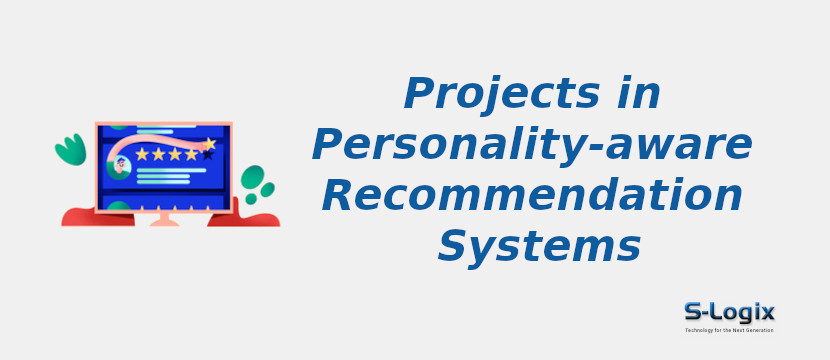Project Background: The Personality-aware Recommendation Systems lie at the intersection of artificial intelligence and personalized user experiences. In the vast landscape of recommendation systems, conventional approaches often overlook the crucial aspect of user personality traits that significantly shape individual preferences and choices. It addresses the need for more sophisticated recommendation algorithms to take into account the diverse and nuanced personalities of users. Integrating personality-aware components into recommendation models aims to boost the precision and relevance of suggestions across various domains, including movies, music, and products. Understanding user personalities involves delving into psychological characteristics, preferences, and behavioral patterns, which can be extracted from user interactions, social media, or explicit self-reporting. Ultimately, developing personality-aware recommendation systems aims to create more engaging and personalized user experiences, revolutionizing how content and products are recommended in the digital landscape.
Problem Statement
- In this project work, the personality-aware recommendation systems arise from the limitations of traditional recommendation algorithms that often neglect the diverse and nuanced nature of user personalities.
-
Conventional systems predominantly rely on historical user behaviors and preferences, overlooking that individual personality traits significantly influence preferences and choices.
-
This oversight leads to suboptimal recommendations that may not align with the unique preferences of users hindering user satisfaction and user engagement.
-
Addressing the problem involves challenges of integrating personality-aware components into recommendation models, requiring the extraction and incorporation of user personality traits from various sources such as social media, user interactions, or explicit self-reporting.
-
Moreover, balancing the need for personalized recommendations with user privacy and ethical considerations poses additional complexities.
Aim and Objectives
- Develop advanced personality-aware recommendation systems to enhance the precision and relevance of personalized content recommendations based on individual user traits.
- Implement methods to extract and model user personality traits from diverse sources accurately.
- Integrate personality-aware components into recommendation algorithms to improve the relevance of suggested content.
-
Address privacy concerns by developing mechanisms to handle and protect sensitive user personality information.
-
Ensure system adaptability across numerous recommendation domains, including movies, music, and products.
-
Develop algorithms that respect ethical considerations and provide recommendations in a responsible and unbiased manner.
-
Assess the effectiveness of the personality-aware recommendation system through user engagement metrics and feedback.
-
Design a scalable and computationally efficient system for large user bases and diverse datasets.
-
Conduct comparative analyses with traditional recommendation systems to showcase the superiority of personality-aware approaches in enhancing user satisfaction and content relevance.
Contributions to Personality-aware Recommendation Systems
1. Developing novel methodologies for accurately extracting and modeling user personality traits from various sources like social media, interactions, and self-reported data.
2.
The advancement of recommendation algorithms contributes seamlessly by integrating personality-aware components, ensuring a more personalized and relevant content recommendation process.
3.
Introducing innovative approaches to address privacy concerns implementing mechanisms that responsibly protect and handle sensitive user personality information.
4.
Establishing metrics and methodologies for evaluating the success and impact of personality-aware recommendation systems through user engagement, satisfaction, and feedback.
5.
The scalability and efficiency of recommendation systems ensure large user bases and diverse datasets without compromising performance.
6.
Providing valuable insights through comparative analyses showcases the superiority of personality-aware recommendation systems in improving user satisfaction and content relevance compared to traditional approaches.
Deep Learning Algorithms for Personality-aware Recommendation Systems
- BERT-based Recommendation Models
-
Neural Collaborative Filtering (NCF)
-
Autoencoders for Collaborative Filtering
-
Recurrent Neural Networks (RNNs)
-
Transformer-based Models
-
Graph Neural Networks (GNNs)
-
Siamese Networks for User Similarity
-
Variational Autoencoders (VAEs) for User Modeling
-
Attention Mechanisms in Recommendation Models
-
Dual-Attention Networks
Datasets for Personality-aware Recommendation Systems
- MovieLens Personality Dataset
-
Facebook User Personality Dataset
-
Audio-Visual Emotion and Personality (AVEC) Dataset
-
Yahoo! Music User Ratings and Personality Dataset
-
Goodreads Book Ratings Dataset
-
CafeBazaar App Reviews Dataset
-
Douban Movie Reviews Dataset
-
Kaggle Personality Prediction Dataset
-
CiteULike User Ratings and Tags Dataset
-
Epinions User Ratings and Reviews Dataset
Performance Metrics
- Precision
-
Recall
-
F1 Score
-
Mean Squared Error (MSE)
-
Root Mean Squared Error (RMSE)
-
Area Under the Receiver Operating Characteristic curve (AUC-ROC)
-
Area Under the Precision-Recall curve (AUC-PR)
-
Normalized Discounted Cumulative Gain (NDCG)
-
Mean Reciprocal Rank (MRR)
-
Click-Through Rate (CTR)
Software Tools and Technologies
Operating System: Ubuntu 18.04 LTS 64bit / Windows 10
Development Tools: Anaconda3, Spyder 5.0, Jupyter Notebook
Language Version: Python 3.9
Python Libraries:
1. Python ML Libraries:
- Scikit-Learn
- Numpy
- Pandas
- Matplotlib
- Seaborn
- Docker
- MLflow
2. Deep Learning Frameworks:
- Keras
- TensorFlow
- PyTorch
